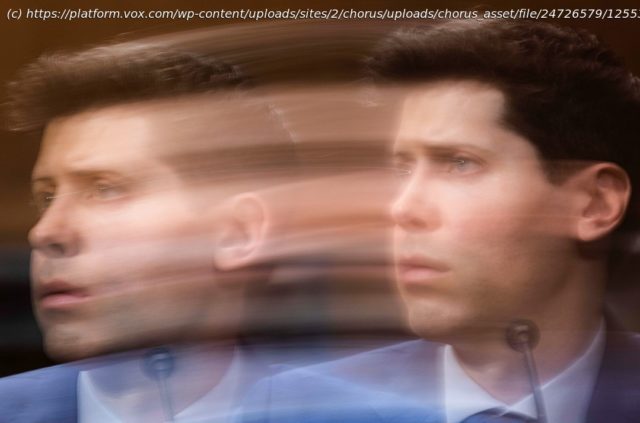The maker of ChatGPT promised to share its profits with the public. But Sam Altman just sold you out.
OpenAI, the company that brought you ChatGPT, just sold you out.
Since its founding in 2015, its leaders have said their top priority is making sure artificial intelligence is developed safely and beneficially. They’ve touted the company’s unusual corporate structure as a way of proving the purity of its motives. OpenAI was a nonprofit controlled not by its CEO or by its shareholders, but by a board with a single mission: keep humanity safe.
But this week, the news broke that OpenAI will no longer be controlled by the nonprofit board. OpenAI is turning into a full-fledged for-profit benefit corporation. Oh, and CEO Sam Altman, who had previously emphasized that he didn’t have any equity in the company, will now get equity worth billions, in addition to ultimate control over OpenAI.
In an announcement that hardly seems coincidental, chief technology officer Mira Murati said shortly before that news broke that she was leaving the company. Employees were so blindsided that many of them reportedly reacted to her abrupt departure with a “WTF” emoji in Slack.
WTF indeed.
The whole point of OpenAI was to be nonprofit and safety-first. It began sliding away from that vision years ago when, in 2019, OpenAI created a for-profit arm so it could rake in the kind of huge investments it needed from Microsoft as the costs of building advanced AI scaled up. But some of its employees and outside admirers still held out hope that the company would stick to its principles. That hope can now be put to bed.
“We can say goodbye to the original version of OpenAI that wanted to be unconstrained by financial obligations,” Jeffrey Wu, who joined the company in 2018 and worked on early models like GPT-2 and GPT-3, told me.
“Restructuring around a core for-profit entity formalizes what outsiders have known for some time: that OpenAI is seeking to profit in an industry that has received an enormous influx of investment in the last few years,” said Sarah Kreps, director of Cornell’s Tech Policy Institute. The shift departs from OpenAI’s “founding emphasis on safety, transparency and an aim of not concentrating power.”
And if this week’s news is the final death knell for OpenAI’s lofty founding vision, it’s clear who killed it. How Sam Altman became an existential risk to OpenAI’s mission
When OpenAI was cofounded in 2015 by Elon Musk (along with Altman and others), who was worried that AI could pose an existential risk to humanity, the budding research lab introduced itself to the world with these three sentences:
OpenAI is a nonprofit artificial intelligence research company.






